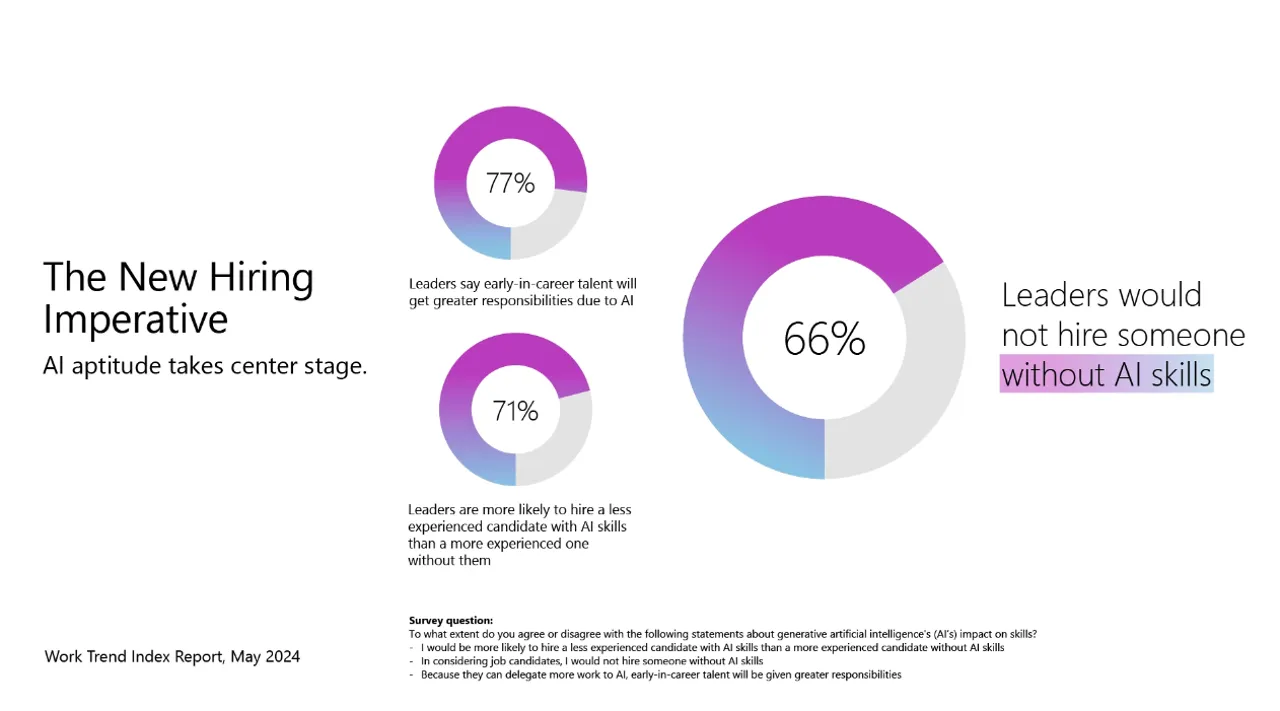Table of contents
But while the benefits are far-reaching, the transition towards this technology can be daunting. Sales leaders must sell the benefits of AI to their teams while addressing any concerns. So, where should you begin? Here, we’ll explore how to prepare your sales team for AI.
Why is AI important for sales teams?
AI is revolutionizing many different aspects of sales, notably by reducing how long some tedious manual tasks take. This is a benefit your team will likely be quick to appreciate! Below are some of the areas where AI is making a significant impact:
- Lead generation. Previously, lead generation could involve a long-winded prospecting process, where agents would have to research and identify prospects. AI can handle prospecting for you, as well as the lead qualification steps. That way, your team can focus on connecting with leads - making the best use of their unique skills.
- Streamlining processes. Some processes such as data entry and updating customer records are essential for sales departments. They are, however, also very time-consuming and dull. AI can handle mundane tasks on behalf of your teams, so they can focus on increasing sales.
- Compliance. Sales teams must always be mindful of relevant legislation. This is especially true if they operate in multiple markets or regions. AI can help you stay on the right side of the law, flagging when agents risk breaching regulations.
- Coaching and analytics. It’s important that agents grow and learn from each customer interaction. Some AI tools can analyze interactions and either provide on-the-spot advice or get the attention of a manager to help. Agents can then rethink their approach, and increase the chances of a successful outcome.
How to prepare for AI-driven changes
Preparation is key to enjoying the benefits of AI to its fullest. Here’s how you can prepare for AI developments in the workplace.
1) Reassure your employees
As we’ve established, the introduction of AI can be a learning curve for your teams. That’s why your first step in preparation should be addressing any concerns they might have. Above all, enforce the idea that AI doesn’t replace human workers. Explain the different ways it will make their lives easier, listing some of the benefits we discussed earlier.
Be sure to prepare your teams in advance of implementing any AI tools. Answer any questions they might have and hold one-to-one meetings if necessary. The more time you take to address their concerns, the easier the implementation will be.
2) Introduce AI-savvy team members
Transitioning to AI becomes much easier if you already have team members familiar with the technology. AI qualified workers can share their expertise and help your sales teams adapt more effectively. They can also reassure teammates who are uncertain.
When you carry out recruitment campaigns, list AI knowledge as a desirable skill. You can even use AI-powered applicant tracking software to look for relevant keywords in resumes. This way, you can quickly find the candidates that have the skills you need.

3) Build a culture of continuous learning
AI is continuously developing, with exciting new developments regularly appearing. To keep a competitive advantage, your business should adapt alongside AI. But simply introducing new sales tools to the office isn’t enough - your team needs skill mobility.
For this, you’ll need a workplace culture that supports continuous learning with all employees, from junior to senior staff encouraged to nurture their skills.
One way of achieving this is through the implementation of a learning management system (LMS). This houses materials that help employees improve within their roles. You should create specific space on your LMS for employees to learn about AI developments, alongside quizzes and instructional guides.
In particular, focus on the key skills needed to operate AI effectively. Focus on providing resources that address the following areas.
- Helping teams understand how they can use high-quality data to train AI algorithms.
- Explaining how to issue prompts effectively when working with generative AI tools.
- Showing how data can be converted into visualizations to support decision-making.
- Outlining the areas where AI may fall short, such as algorithm biases.
Your employees may need a little encouragement to utilize this space, so make sure to recognize those who take time to learn and grow their skills. Additionally, hold one-to-one meetings to identify individual areas where team members are struggling, and make sure you provide the support they need.
4) Ensure high-quality data
AI tools rely on data for accuracy. But if data is of a low quality, it’s likely to provide incorrect insights and hinder, rather than help sales teams. That’s why, as you prepare for AI implementations, data hygiene should be a high priority.
In particular, your sales teams should know how to keep CRM systems up-to-date with clean data. This means recording all customer interactions and insights – if a sales conversion involves four meetings all four should be on record. Otherwise, you risk receiving incorrect forecasting data.
To maintain the data hygiene of your CRM, it’s important to perform regular audits. This should involve a regular review of data to look for duplicate entries, mistakes, and outliers. Remember, this is also a job that can be handled by AI. The right automation tool can scan your CRM and flag errors and anomalies.
Take particular care when assessing forms where customers have input information directly. There is a higher chance that these could be inaccurate.
5) Boost security
As we’ve discussed, maintaining effective AI requires gathering large amounts of sales data. This information can be dangerous in the wrong hands and any breaches can severely damage customer trust. That’s why securing your data should be a priority.
In some jurisdictions, it’s also a legal requirement. Laws such as GDPR for users based in the EU or UK, or CCPA for users in California, obligate businesses to protect data.
Make sure that access to data is on a ‘need to know’ basis. Add extra layers of security, such as phone number verification, to control access. It’s also important to ensure that all databases are protected with the latest firewalls and encryption methods.
6) Introduce AI into sales training
To help your representatives get used to AI in their day-to-day lives, why not introduce the technology into your training processes? There are numerous ways that AI can help coach your team, such as:
- Simulate interactions with customers. Generative AI can take the role of an imaginary customer, allowing agents to practice techniques and gain realistic responses.
- Employee onboarding. Thanks to the natural language processing (NLP) capabilities of some tools, AI can help streamline your onboarding process. NLP can scan job descriptions and then tailor onboarding to incorporate the specific tools and information employees need to succeed.
- Assess agent performance. You can use AI to monitor agent interactions and provide a performance assessment. This helps sales managers offer more targeted support for agents.
Help sales teams embrace AI
There’s no denying that AI is the future. We’re already seeing evidence of how it’s helping sales agents perform better. Whether it’s lead generation, automating repetitive tasks, or ensuring compliance, AI has a wide range of use cases.
But this doesn’t mean that organizations can transition to AI overnight. Preparation is key to success. You’ll need to prepare your team and dissuade their concerns. You’ll also need high-quality data and infrastructure to support your AI business goals.
Here, we’ve explored how to prepare for AI-driven changes. Consider our points one by one, and begin preparing for changes. With enough planning and care, you can begin using AI to its fullest.
Sell Smarter, Close Faster: Transform Your Sales with Mira AI
Take your sales game to the next level with Mira AI. By handling up to 80% of customer inquiries automatically, Mira frees your sales team from repetitive questions and lets them focus on high-value leads and complex negotiations that drive real results. Stop spending time on basic customer support and start investing in conversations that close deals.
Let AI handle the groundwork while your sales experts do what they do best—building relationships, solving tough challenges, and converting opportunities into revenue. Mira AI doesn’t just save time—it empowers your team to sell smarter, faster, and with greater impact.

